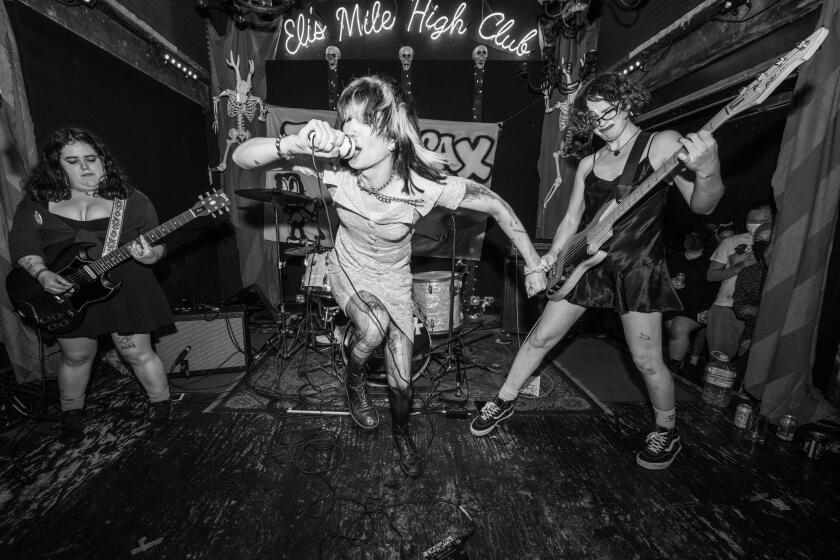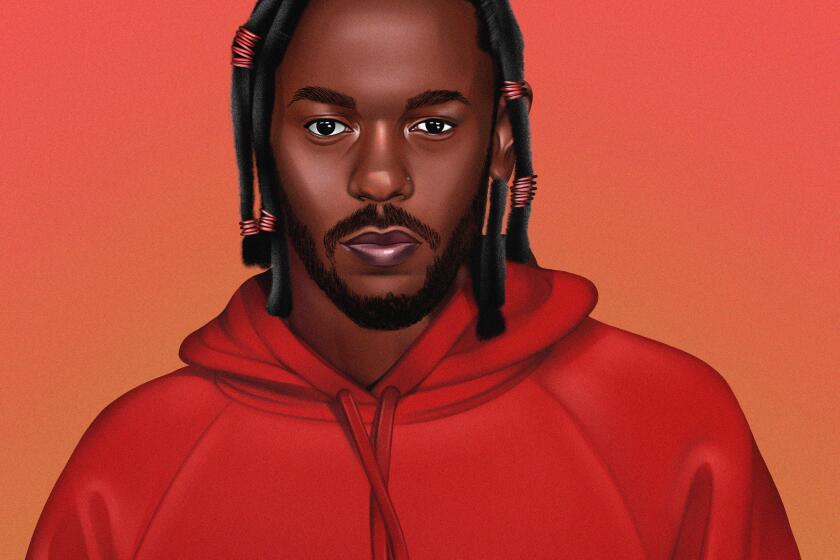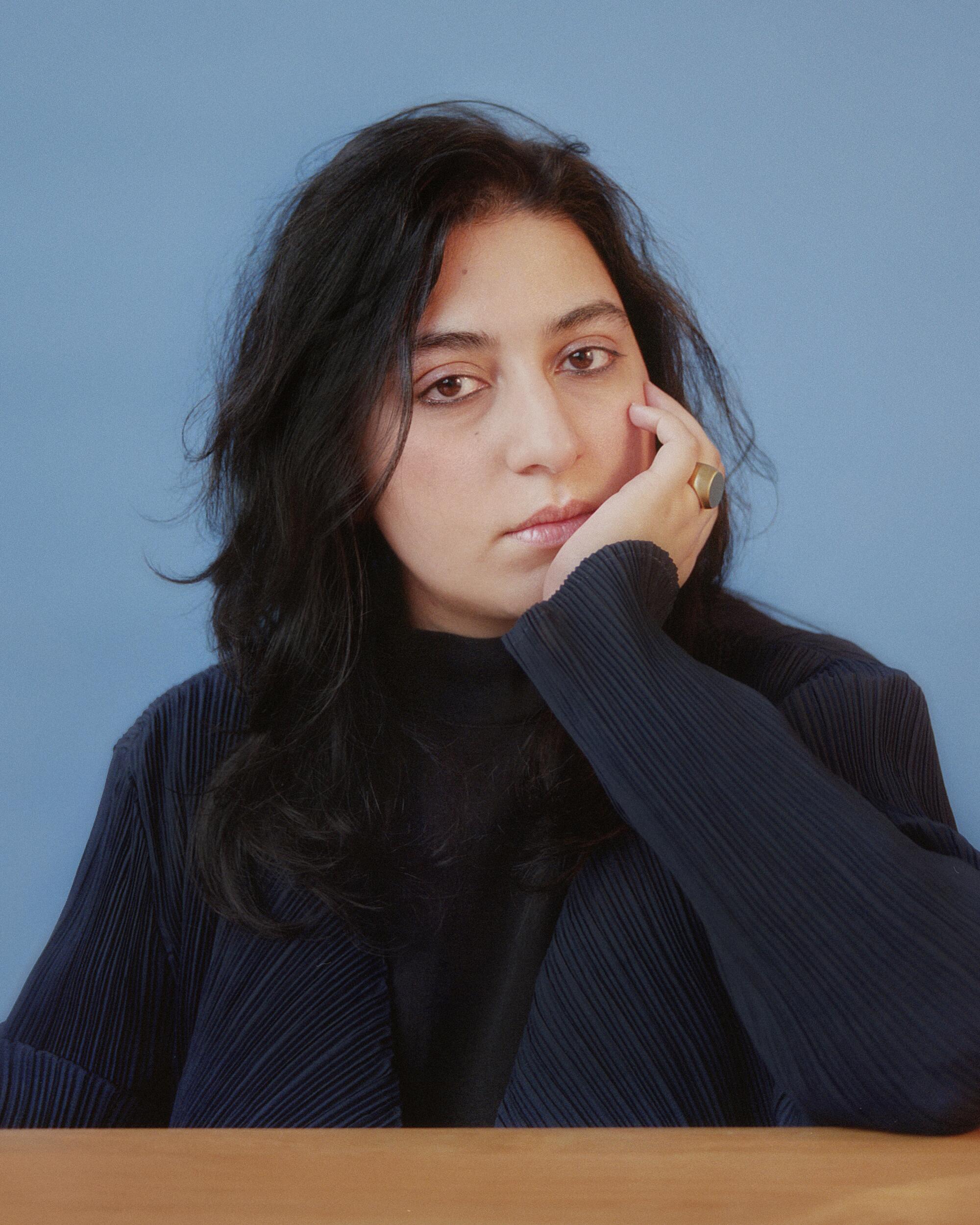
Though the differences between best new artist nominee Arooj Aftab and the nine other musicians up for the coveted Grammy award are apparent — Aftab sings mostly in Urdu on her 2021 album “Vulture Prince,” for one — the Pakistan-raised, Brooklyn-based vocalist has little interest in being considered an outlier on the Recording Academy’s coveted list.
“I’ve been part of this industry for so long that I don’t deserve to be other-ized anymore,” Aftab says over Zoom.
Still, by nominating her, she acknowledges, “they’ve actually changed history.”
“Maybe they defaulted into it and they don’t realize what they’ve done,” the singer, 36, continues with a slight smile, “[but] the world music voters, the classical voters, the jazz voters and all of these factions — so many of them aren’t plugged into mainstream pop.”
Aftab is speculating on her odds from Brooklyn. A day prior, she’d returned from a combination European tour and work-related detour to Pakistan. She was there when the Grammy nominations were announced. In addition to new artist, Aftab got a global music performance nod for the “Vulture Prince” song “Mohabbat.”

Jet-lagged and admitting to being overwhelmed by the increased attention, she notes that, considering she moved to the U.S. to attend Berklee College of Music when she was 19, she’s lived longer here than either in Pakistan or Saudi Arabia. “The American dream is playing itself out on its own, right?”
She adds, “I wanted ‘Vulture Prince’ to transcend boundaries. I wanted to combine all of my experiences and have them translated in the music.”
Born to Pakistani expat parents in Saudi Arabia, Aftab and her family returned to their native Lahore, Pakistan, when she was about 10. She spent her teen years there before being accepted to Berklee to study voice. After graduation, Aftab moved to New York, where she’s been part of the city’s jazz and new music scene for the past 15 years.
Pianist, composer and MacArthur fellowship grant recipient Vijay Iyer met Aftab in early 2017 when they shared a bill as part of the Ecstatic Music Festival in New York. Backstage before their performances, Iyer sat down at what he described during a recent phone chat as “a funky upright piano in the dressing room.” With Aftab beside him, continues Iyer, “we spontaneously created something on the spot.” They’ve been collaborating ever since and recorded an album together, though it doesn’t yet have a release date.
“It’s a real breakthrough in a lot of ways, and not just for her, but America,” the pianist, who teaches at Harvard University in the department of music and the department of African and African American studies, says of his collaborator’s Grammy recognition. “It feels like a new step, culturally, that someone like her, who sings in Urdu and is channeling these really deep lineages and histories so authentically and honestly, could be at this American pop culture pinnacle.”
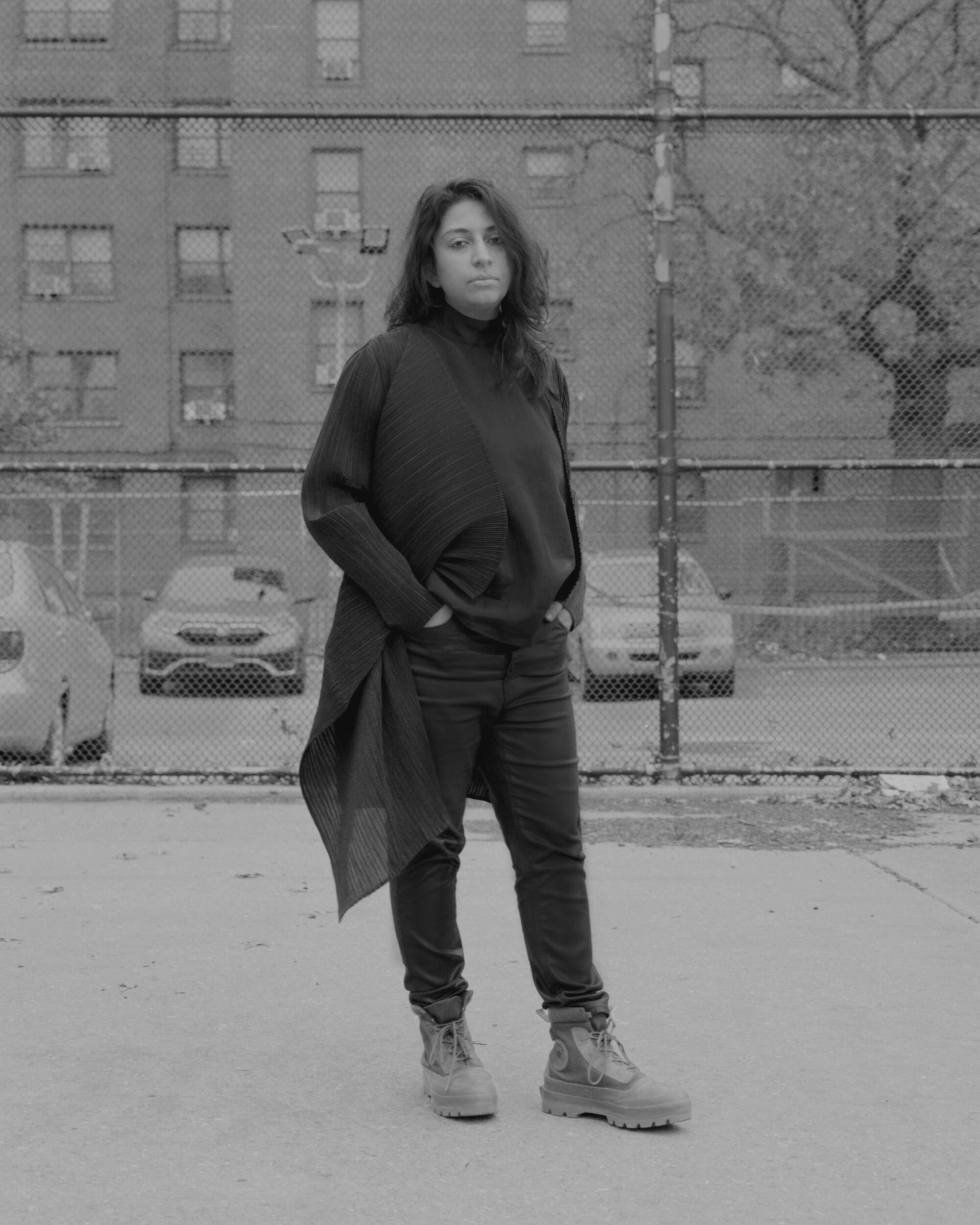
Those willing to explore Aftab’s “Vulture Prince” will find seven songs ranging in length from five to eight minutes and featuring both acoustic and electronic elements. Initially a more upbeat production after two meditative previous albums, its trajectory was disrupted by the unexpected death of a close friend and, two months later, the death of Aftab’s younger brother for undisclosed reasons. (“When I was dedicating the album to my younger brother, I didn’t realize that I’d have to talk about him over and over again,” she says mournfully before moving to another subject.)
“I had to take a step back and calm down a bit and actually revert to the healing energy power of the music, which is something that I was running away from as I was trying to make it more acceptable,” she says. After the losses, she removed the drums and reworked some of the rhythmic structures, which “gave it a lighter feel.... It flew more, I think, once we removed an instrument that needs tempo all the time.”
For lyrics, she turned to minimalist Asian poets including Mirza Ghalib, Rumi and Hafeez Hoshiarpuri. “There’s incredible poetry written by my ancestors dating so far back,” says Aftab. “I can focus on melody and on how I can get musicians to transcend their instrument and interlock with each other.”
The punker-turned-pro-skater from Oakland inspires trans kids to be whatever they want to be.
Those interlocking elements extend to the album itself, which she describes as a song cycle with a main character, the “Vulture Prince” of the title, who represents her — and each person’s — journey through the world. The vulture, she explains, “has been exalted as this bird that doesn’t hunt. It eats things that are already dead, which has this dark and nasty connotation — but also this very beautiful circle-of-life connotation that is an integral part of folklore for so many different cultures.”
Like vultures, she says, “we have our darkness, but we also contribute to the betterment of the world.”
That her particular form of betterment has been rewarded with a major Grammy nomination still amazes her, and she certainly plans to attend the 64th Grammy Awards on Jan. 31. Asked about her peers in the category, Aftab says that she loves pop music, especially Billie Eilish and Finneas, and cites Baby Keem’s nominated track “Family Ties” as one of her recent favorites. But, she adds, she’s also been paying attention to the dark side of popular stardom. “I was reading something about Doja Cat saying, ‘I’m burned out and I’m being forced to do things, but I just want to sit on my couch and play video games.’ I was like, ‘Oh, that sounds terrible.’”
Pausing a beat, Aftab says, “That’s starting to happen to me, too, but not on that level yet.”
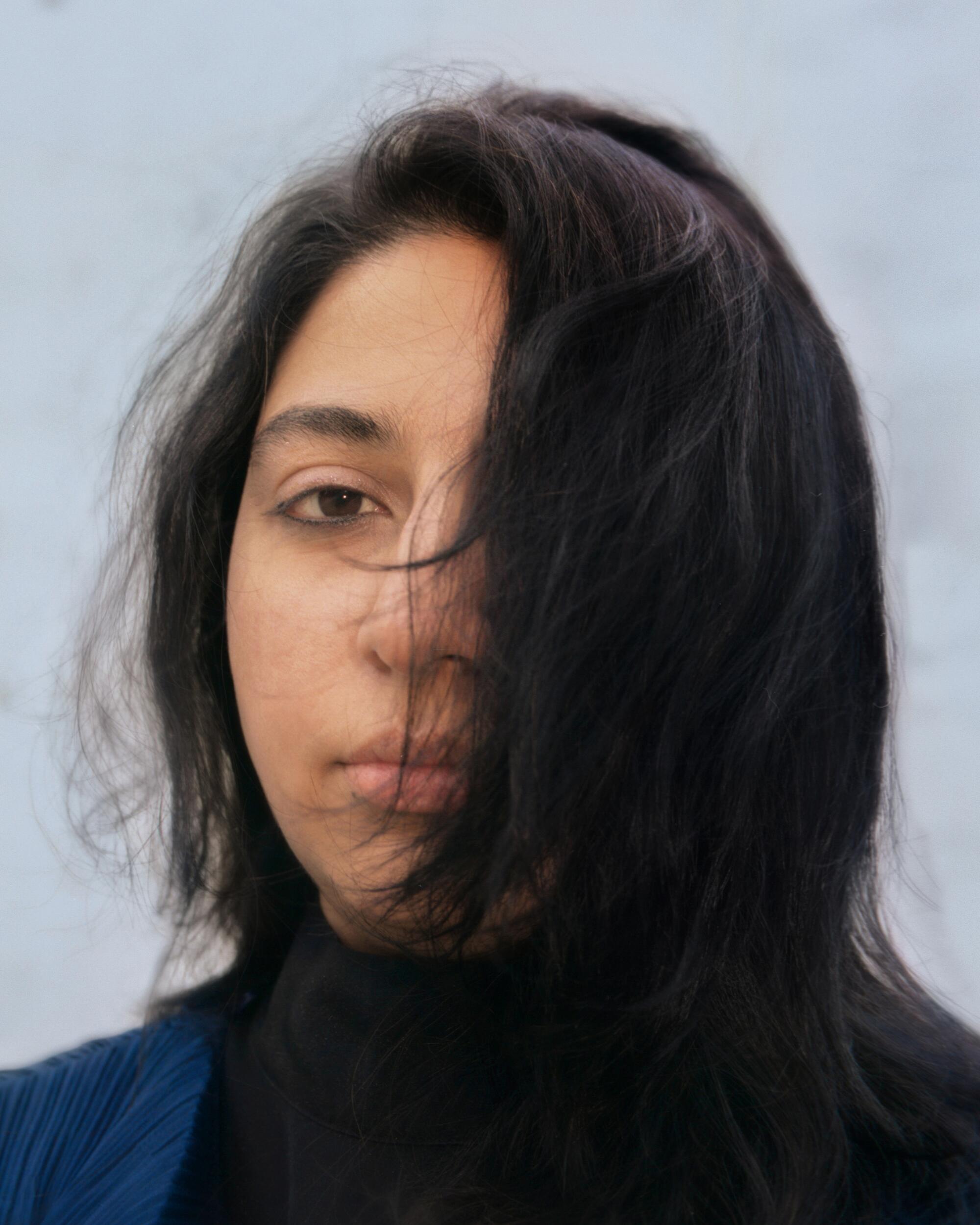
More to Read
From the Oscars to the Emmys.
Get the Envelope newsletter for exclusive awards season coverage, behind-the-scenes stories from the Envelope podcast and columnist Glenn Whipp’s must-read analysis.
You may occasionally receive promotional content from the Los Angeles Times.
